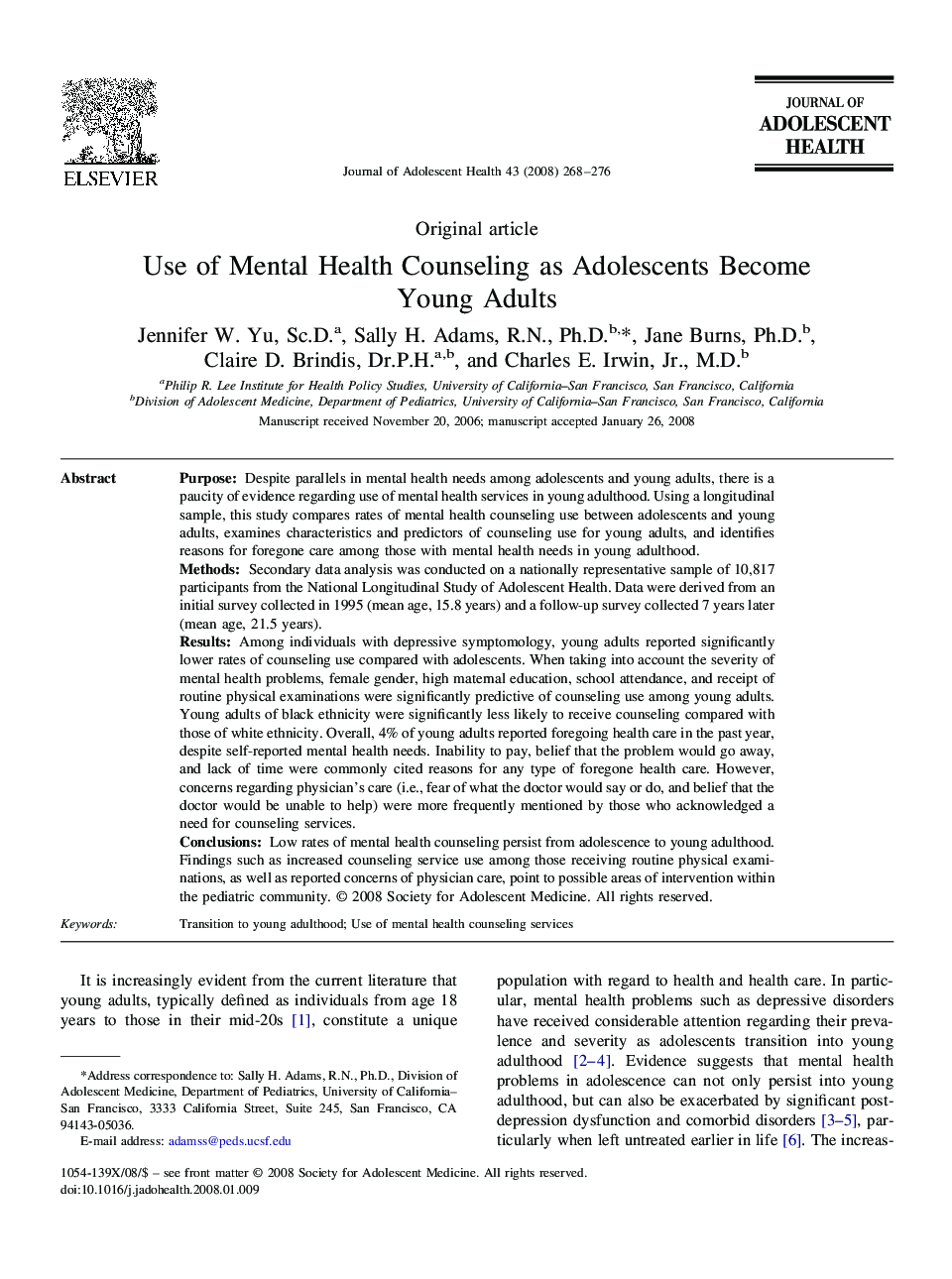| کد مقاله | کد نشریه | سال انتشار | مقاله انگلیسی | نسخه تمام متن |
|---|---|---|---|---|
| 1081177 | 950576 | 2008 | 9 صفحه PDF | دانلود رایگان |

PurposeDespite parallels in mental health needs among adolescents and young adults, there is a paucity of evidence regarding use of mental health services in young adulthood. Using a longitudinal sample, this study compares rates of mental health counseling use between adolescents and young adults, examines characteristics and predictors of counseling use for young adults, and identifies reasons for foregone care among those with mental health needs in young adulthood.MethodsSecondary data analysis was conducted on a nationally representative sample of 10,817 participants from the National Longitudinal Study of Adolescent Health. Data were derived from an initial survey collected in 1995 (mean age, 15.8 years) and a follow-up survey collected 7 years later (mean age, 21.5 years).ResultsAmong individuals with depressive symptomology, young adults reported significantly lower rates of counseling use compared with adolescents. When taking into account the severity of mental health problems, female gender, high maternal education, school attendance, and receipt of routine physical examinations were significantly predictive of counseling use among young adults. Young adults of black ethnicity were significantly less likely to receive counseling compared with those of white ethnicity. Overall, 4% of young adults reported foregoing health care in the past year, despite self-reported mental health needs. Inability to pay, belief that the problem would go away, and lack of time were commonly cited reasons for any type of foregone health care. However, concerns regarding physician's care (i.e., fear of what the doctor would say or do, and belief that the doctor would be unable to help) were more frequently mentioned by those who acknowledged a need for counseling services.ConclusionsLow rates of mental health counseling persist from adolescence to young adulthood. Findings such as increased counseling service use among those receiving routine physical examinations, as well as reported concerns of physician care, point to possible areas of intervention within the pediatric community.
Journal: Journal of Adolescent Health - Volume 43, Issue 3, September 2008, Pages 268–276